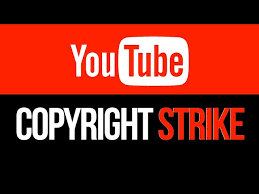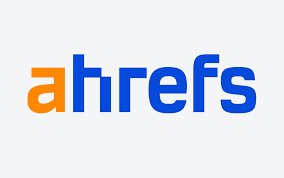Here you can find Top30 FAQs about food!
Q1. What is food?
A1. Food is any substance consumed to provide nutritional support for an organism.
Q2. What is a balanced diet?
A2. A balanced diet is one that includes all the essential nutrients in the right proportions.
Q3. What are the main food groups?
A3. The main food groups are fruits, vegetables, grains, protein foods, dairy products, and fats and oils.
Q4. What are the benefits of eating a balanced diet?
A4. Eating a balanced diet provides the body with all the essential nutrients it needs to stay healthy and functioning optimally. It can help to reduce the risk of developing chronic diseases such as heart disease, diabetes, and obesity.
Q5. Why is it important to eat a variety of foods?
A5. Eating a variety of foods ensures that you get all the essential nutrients your body needs to function properly. Eating a variety of foods also helps to ensure that you don’t get bored with your diet.
Q6. What are some healthy snacks?
A6. Some healthy snacks include nuts, fruits, vegetables, yogurt, and whole-grain crackers.
Q7. What is the difference between organic and non-organic food?
A7. Organic food is produced without the use of synthetic pesticides, fertilizers, or other artificial substances. Non-organic food may contain synthetic pesticides, fertilizers, or other artificial substances.
Q8. What is the difference between processed and unprocessed food?
A8. Processed food is food that has been altered from its natural state through some form of processing, such as canning, drying, or freezing. Unprocessed food is food that has not been altered from its natural state.
Q9. What is the difference between fast food and slow food?
A9. Fast food is food that is prepared quickly and typically not of high nutritional value. Slow food is food that is prepared with more care and attention and typically has a higher nutritional value.
Q10. What are some tips for eating healthy on a budget?
A10. Some tips for eating healthy on a budget include planning meals in advance, using coupons, buying in bulk, choosing simple recipes, and eating more plant-based foods.
Q11. What is the difference between a vegetarian and a vegan diet?
A11. A vegetarian diet does not include meat or fish, but may include dairy and eggs. A vegan diet does not include any animal products, including dairy and eggs.
Q12. What is the difference between natural and artificial sweeteners?
A12. Natural sweeteners are derived from natural sources such as fruits, vegetables, honey, and maple syrup. Artificial sweeteners are man-made and typically contain fewer calories than natural sweeteners.
Q13. What is the difference between whole grain and refined grains?
A13. Whole grains are grains that have not been processed or refined and contain all their original parts. Refined grains have been processed and only some of the original parts remain.
Q14. What is the difference between a carbohydrate and a protein?
A14. Carbohydrates are a type of nutrient that provide energy to the body. Proteins are a type of nutrient that provide building blocks for tissue and muscle growth.
Q15. What are some sources of healthy fats?
A15. Some sources of healthy fats include nuts, seeds, avocados, olive oil, and fatty fish.
Q16. How much water should I drink each day?
A16. It is recommended that adults drink 8-10 glasses of water per day.
Q17. What is the difference between low-fat and fat-free?
A17. Low-fat foods contain 3 grams of fat or less per serving while fat-free foods contain less than 0.5 grams of fat per serving.
Q18. What is the difference between sodium and salt?
A18. Sodium is an essential mineral found in many foods and is an important part of a healthy diet. Salt is a combination of sodium and chloride.
Q19. What is the difference between white and brown rice?
A19. White rice has been processed and has had its outer layer and germ removed, resulting in a less nutritious rice. Brown rice has not been processed and is a whole grain, making it more nutritious than white rice.
Q20. What are some sources of plant-based protein?
A20. Some sources of plant-based protein include beans, lentils, nuts, seeds, and tofu.
Q21. What is the difference between a starch and a sugar?
A21. Starch is a complex carbohydrate that is found in grains and is slowly digested, providing long-lasting energy. Sugar is a simple carbohydrate that is quickly absorbed and provides a short burst of energy.
Q22. What is the difference between raw and cooked food?
A22. Raw food has not been heated and is typically consumed in its natural state. Cooked food has been heated, which can help to increase nutrient availability.
Q23. What is the difference between a healthy and an unhealthy diet?
A23. A healthy diet is one that includes a variety of nutrient-dense foods and limits sugar, saturated fat, and sodium. An unhealthy diet is one that is high in sugar, saturated fat, and sodium and is low in nutrient-dense foods.
Q24. What is the difference between calorie-dense and nutrient-dense foods?
A24. Calorie-dense foods are high in calories but low in nutrients. Nutrient-dense foods are high in nutrients and low in calories.
Q25. What are some tips for eating out healthily?
A25. Some tips for eating out healthily include ordering smaller portions, choosing leaner cuts of meat, opting for grilled or steamed items, avoiding fried foods, and making sure to include fruits and vegetables in your meal.
Q26. What are some tips for eating healthy on a budget?
A26. Some tips for eating healthy on a budget include planning meals in advance, using coupons, buying in bulk, choosing simple recipes, and eating more plant-based foods.
Q27. What are some tips for eating healthy snacks?
A27. Some tips for eating healthy snacks include choosing snacks that are low in sugar and fat, such as fruits, vegetables, nuts, and yogurt.
Q28. What is the difference between a carbohydrate and a protein?
A28. Carbohydrates are a type of nutrient that provide energy to the body. Proteins are a type of nutrient that provide building blocks for tissue and muscle growth.
Q29. What is the difference between a vegetarian and a vegan diet?
A29. A vegetarian diet does not include meat or fish, but may include dairy and eggs. A vegan diet does not include any animal products, including dairy and eggs.
Q30. What are some healthy alternatives to sugar?
A30. Some healthy alternatives to sugar include honey, stevia, and











